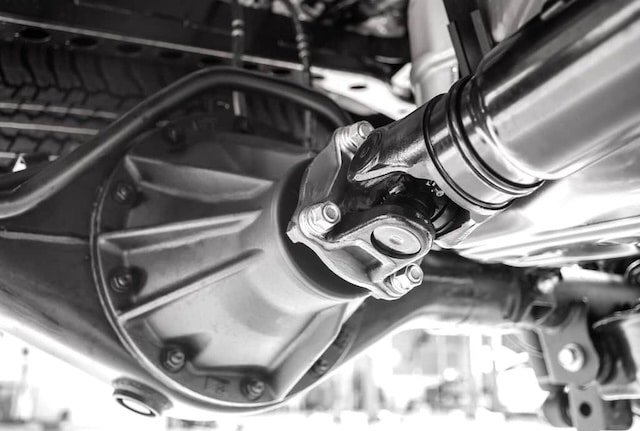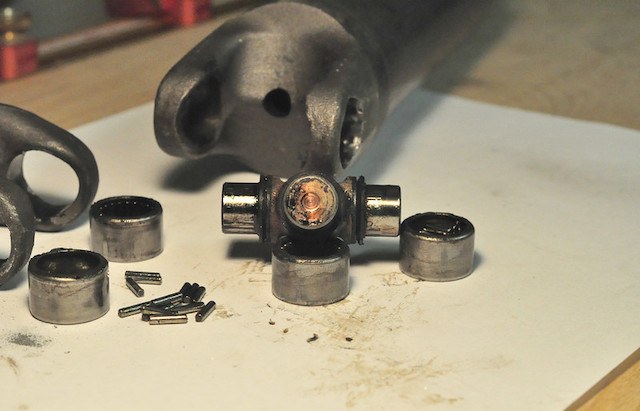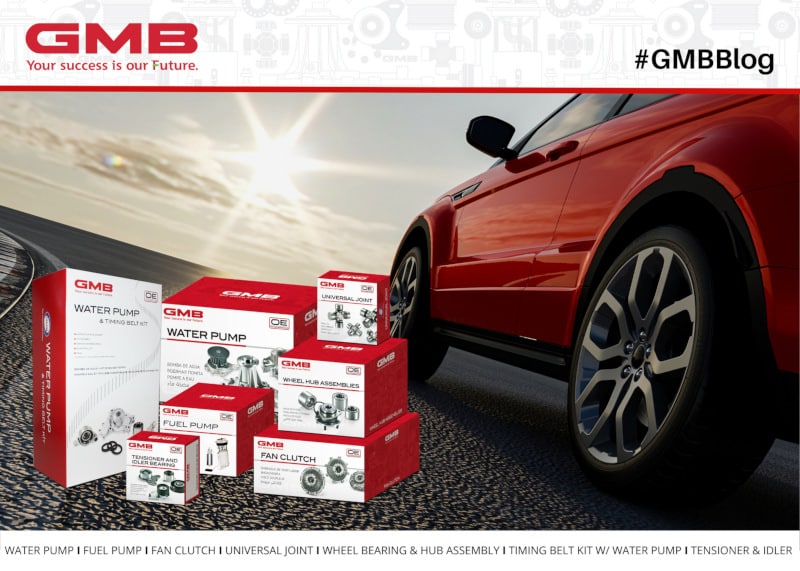What’s That Noise? Do Bad U-Joints Squeak?
When a u-joint goes bad, it starts making noise. The most common noises bad u-joints make are:
- Squeaking noise
- Humming noise
- Clunking noise
If you hear a clunking or vibrating noise, you must replace your u-joints ASAP. (More about u-joint troubleshooting and replacement here.) The clunking sound and vibration usually come after the u-joint has failed. And when this is noticed, the u-joints should be checked and replaced when necessary. Since most driveshafts have two joints, it is recommended that both should be replaced at the same time.
U-joints may start with a squeaking sound when it fails from lack of lubrication. And if you hear this sound, you may wonder if it means your u-joints have gone bad.
Why Bad U-Joints Make A Clunking Or Low Humming Noise

When a u-joint goes bad, it has too much play in its bearings. When you shift into drive or reverse, you may notice a clunking or banging noise. That is the metal cross in the u-joint slamming against the bearings in the bearing caps. You may also hear this noise in other situations, such as:
- Shifting gears on a manual transmission
- Heavy acceleration or deceleration
Another noise caused by excessive play in the u-joint is a low humming sound. This usually happens when the vehicle is in motion, and moving at 40 mph or more. The driveshaft vibrates because it isn’t held tightly by the worn u-joint(s). When the shaking gets rapid enough, vibration occurs. You can sometimes feel this in the floorboards, and sometimes hear a low humming sound that matches the vibration.
What Does It Mean When My U-Joints Are Squeaking?
Squeaking is a less common noise heard in failing u-joints, but it sometimes happens. This is most common when a u-joint loses lubrication, and is subject to water intrusion. The bearings can rust in that situation, and you may hear squeaking at low speeds.
The sound of squeaking is more high-pitched than most other noises made by bad u-joints. This is because both surfaces are rubbing together without much lubrication. The squeaking sound can range from low pitch to high pitch, depending on the amount of lubrication left.
Squeaking Can Also Indicate Other Problems
When you hear a squeaking sound, it could be caused by other problems besides bad u-joints. A few common examples:
- A bad wheel bearing
- Sticking caliper
- Loose suspension parts
- Bad ball joints
How Do I Know If My U-Joints Are Bad?

Sometimes u-joints go bad without making any noises at all. You may not notice anything wrong with them until you have to replace them. But, if you’re in the habit of listening for strange noises, it may be a good idea to listen closely. Of course, you should only trust your ears so much. You should also visually inspect the joints for any visible damage or deterioration.
MORE CONTENT
Stay current!
Sign up here to get the latest news
and updates on all things GMB.
Sign Up To Receive GMB News & Updates!

